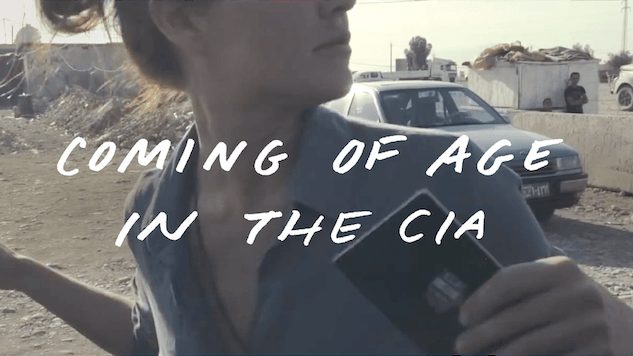Amaryllis Fox’s New Memoir Explores Her Life Undercover in the CIA

Could a spy prevent a terrorist attack not by defusing a bomb, but by offering clove oil to the terrorist leader’s coughing baby? It’s possible, and Amaryllis Fox has done it. In her gripping memoir, Life Undercover: Coming of Age in the CIA, she writes about joining the CIA at age 21, spending eight years posing as an art dealer, recruiting arms dealers as sources and trying to keep weapons of mass destruction out of terrorists’ hands. Fox also weaves a seemingly commonplace narrative about her marriage and daughter’s birth, but she writes with such poignant introspection that this narrative becomes the soul of her memoir.
But first, let’s talk about spycraft. Forget archaic methods of writing chalk on brick walls; Fox describes spy tricks that have been updated for the 21st century. Real spies, she writes, carry “Rolaids to make signal marks on bricks because it’s less incriminating than chalk, in case of capture and search.” Another modern way to signal a meeting is by giving a Starbucks gift card to an asset and “[telling] them, ‘If you need to see me, buy a coffee.’” The agent then checks the balance on the card online, and if it’s depleted, goes to the meeting.
 When Fox describes meeting with targets or sources embedded deep within terrorist networks, she writes with the strong conviction that the purpose is not to defeat the enemy but to understand them. The moment of recruiting an asset isn’t the patronizing exchange you often see in movies, where the spy corners a desperate target to betray their evil organization. Instead, Fox explains, “it’s one of the most soulful, vulnerable moments two humans can share…These are the relationships that last decades, that end wars, that prevent attacks…that change history.” Whether she has successfully recruited a source or convinced terrorists to call off an attack, Fox recognizes that “everybody believes that they are the good guy.”
When Fox describes meeting with targets or sources embedded deep within terrorist networks, she writes with the strong conviction that the purpose is not to defeat the enemy but to understand them. The moment of recruiting an asset isn’t the patronizing exchange you often see in movies, where the spy corners a desperate target to betray their evil organization. Instead, Fox explains, “it’s one of the most soulful, vulnerable moments two humans can share…These are the relationships that last decades, that end wars, that prevent attacks…that change history.” Whether she has successfully recruited a source or convinced terrorists to call off an attack, Fox recognizes that “everybody believes that they are the good guy.”
Fox also writes about her two previous marriages with the same empathy. Her first, to a British civilian, fell apart because her advancing training in the CIA alienated him. Her second marriage was to a fellow CIA agent. The CIA deployed both of them to Shanghai and subjected them to the strain of living a lie and being under constant surveillance. They knew that they must “have sex regularly but not too regularly, keep it hot but not too hot” and “playact at marital bliss for the watching eyes.” They chose to have a child together in Shanghai, but their marriage felt increasingly devoid of love over time. In her memoir, Fox never faults her ex-husband, acknowledging how he both yearned for and was haunted by his previous intelligence work in Afghanistan.
Fox’s lyrical prose paints her marriage and motherhood experiences with aching loneliness, as living undercover gradually eroded her sense of true self. But her daughter Zoë always possessed an uncanny ability to detect moments when Fox dropped her pretense. Fox writes, “Zoë sees me when I forget myself…I’m real only when I’m not aware of being anything at all.” Fox’s search for identity and her desire to build trust, not to exert force, finally led her to quit the CIA and to facilitate programs of reconciliation between gang members at home and warring tribes abroad.
From beginning to end, Life Undercover sets aside high-octane street chases and gunfights for an equally riveting narrative of compassion, revealing that the path to peace is through understanding the common humanity in us all.
Jane Huang is a neuroscience PhD student by day and a freelance writer by night. She currently lives in Pittsburgh, PA.